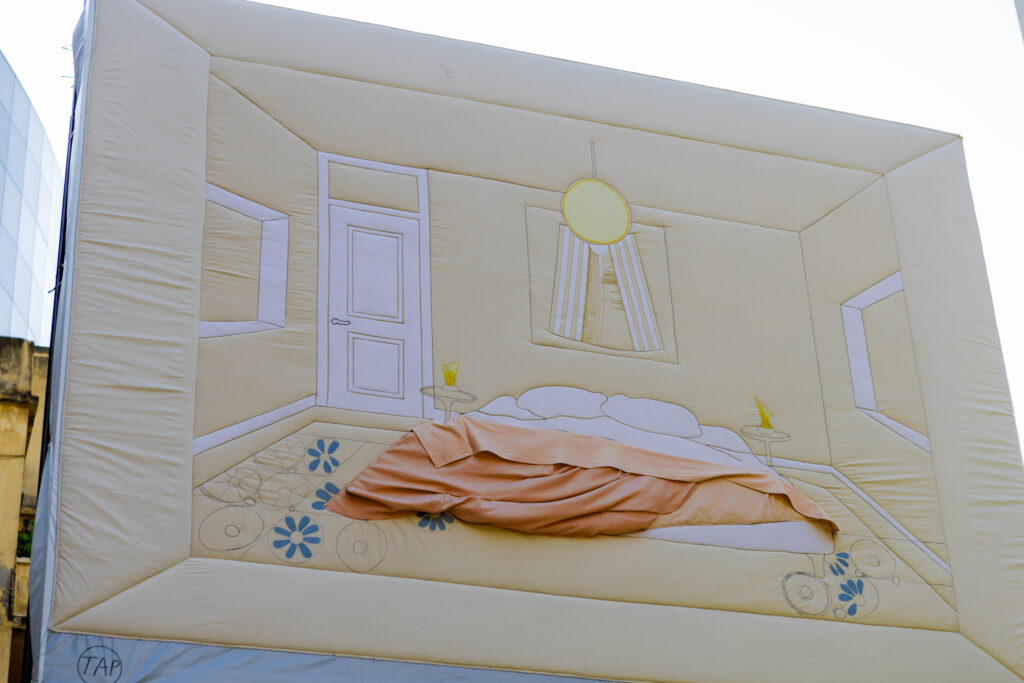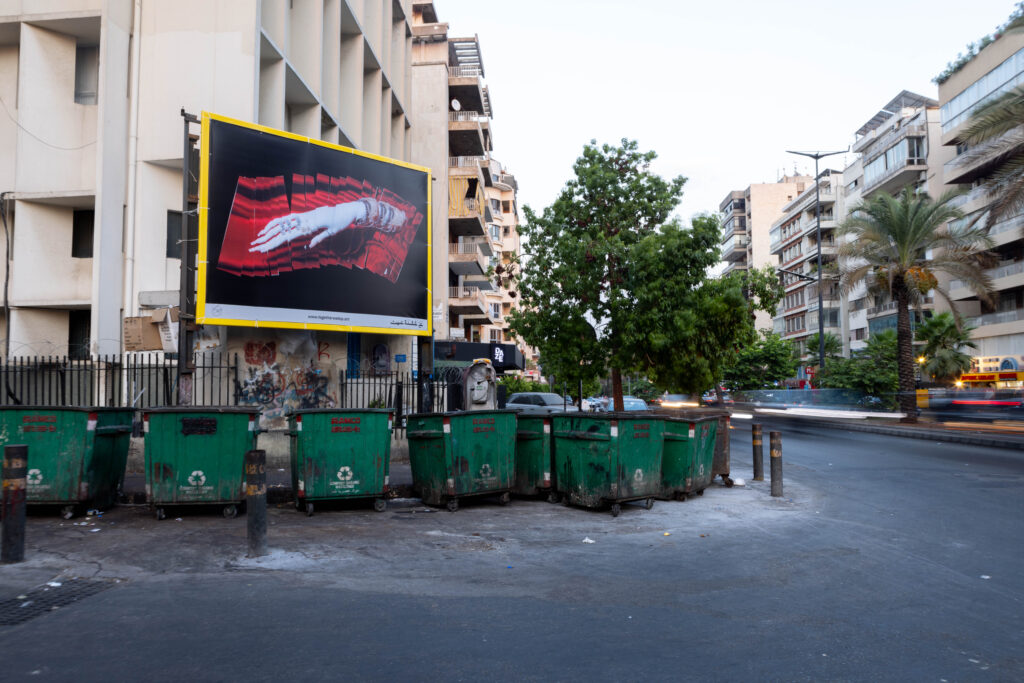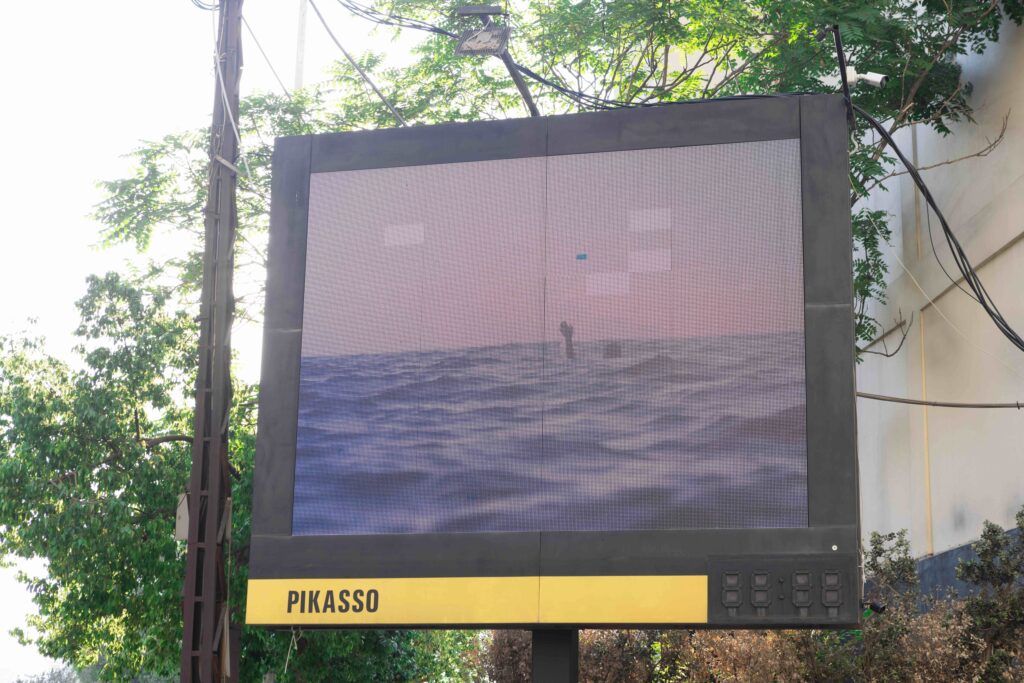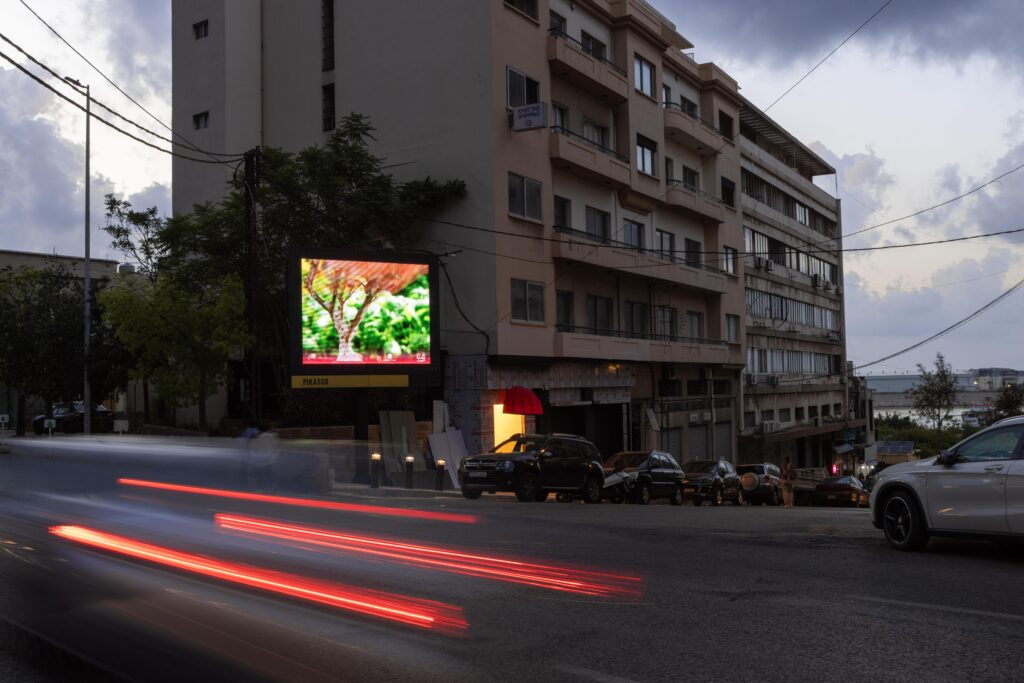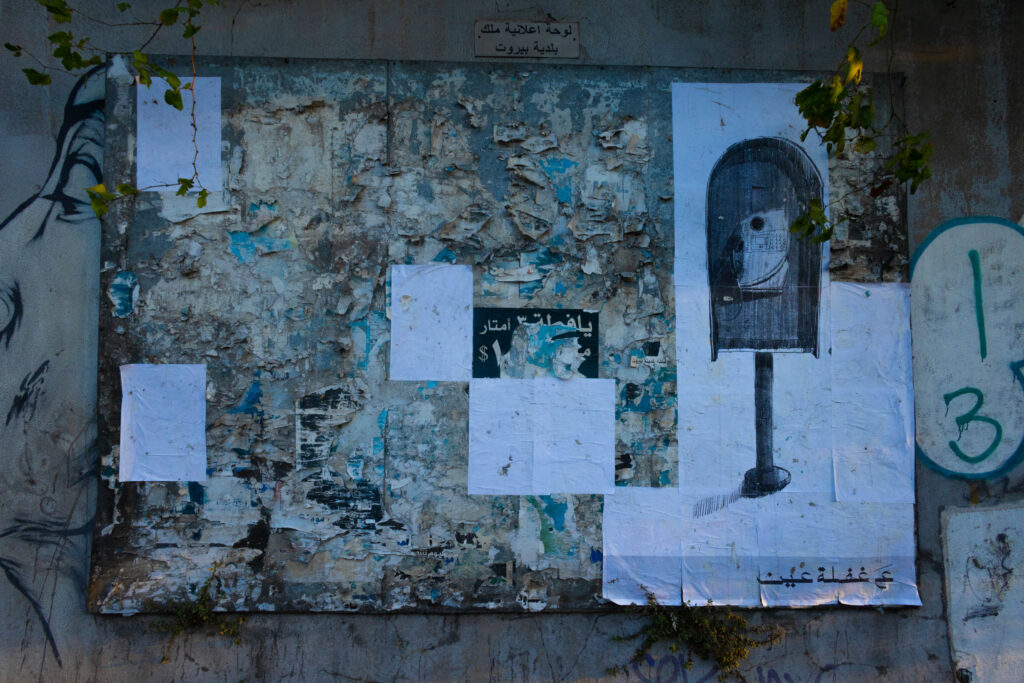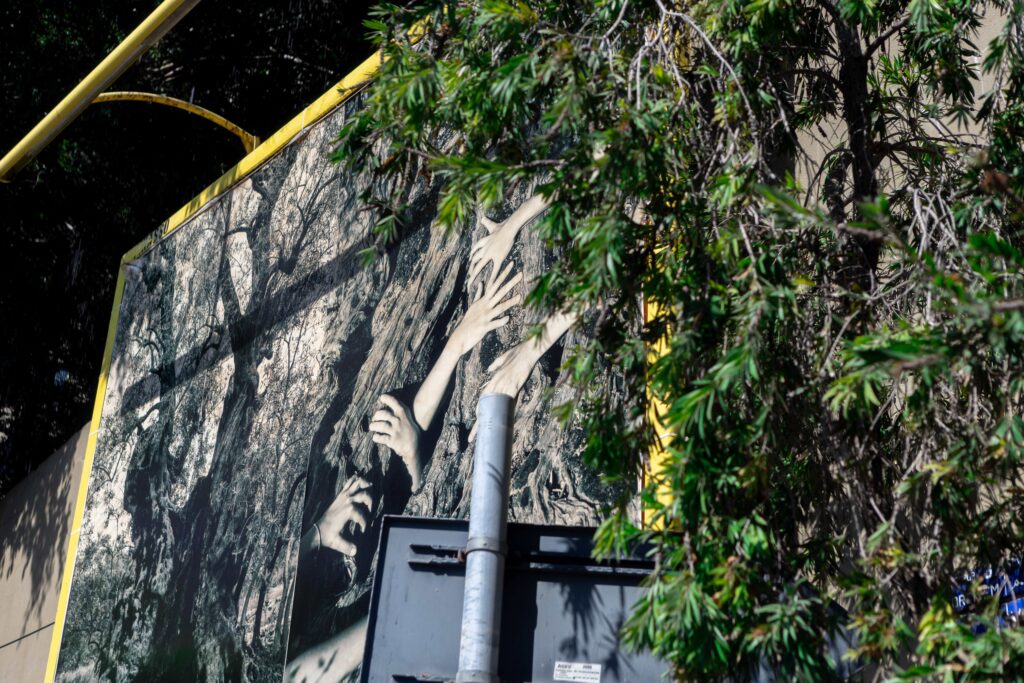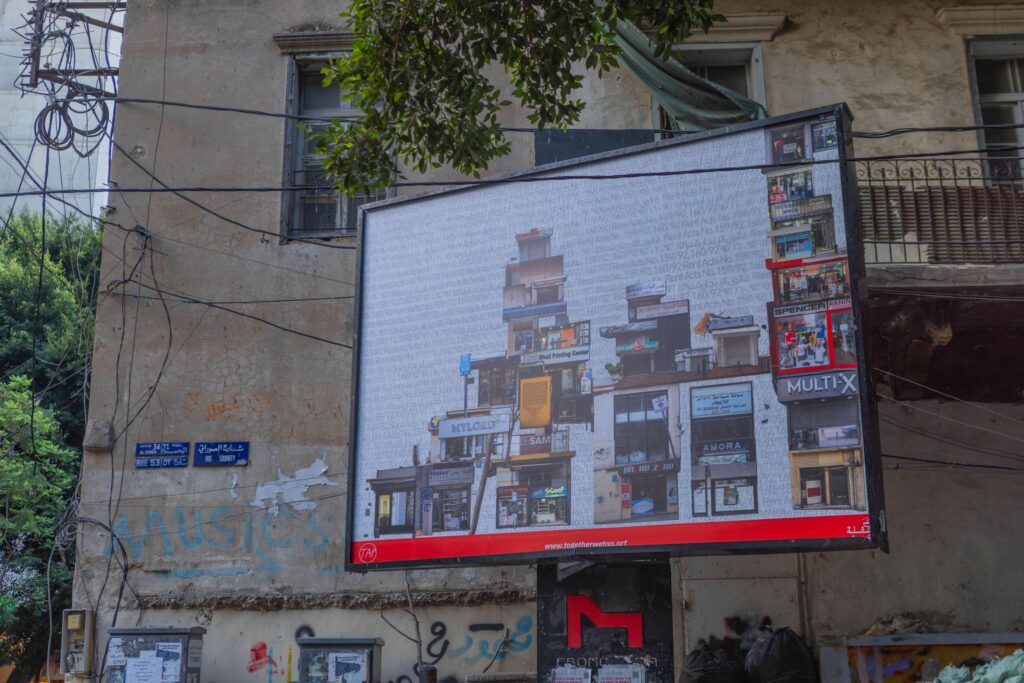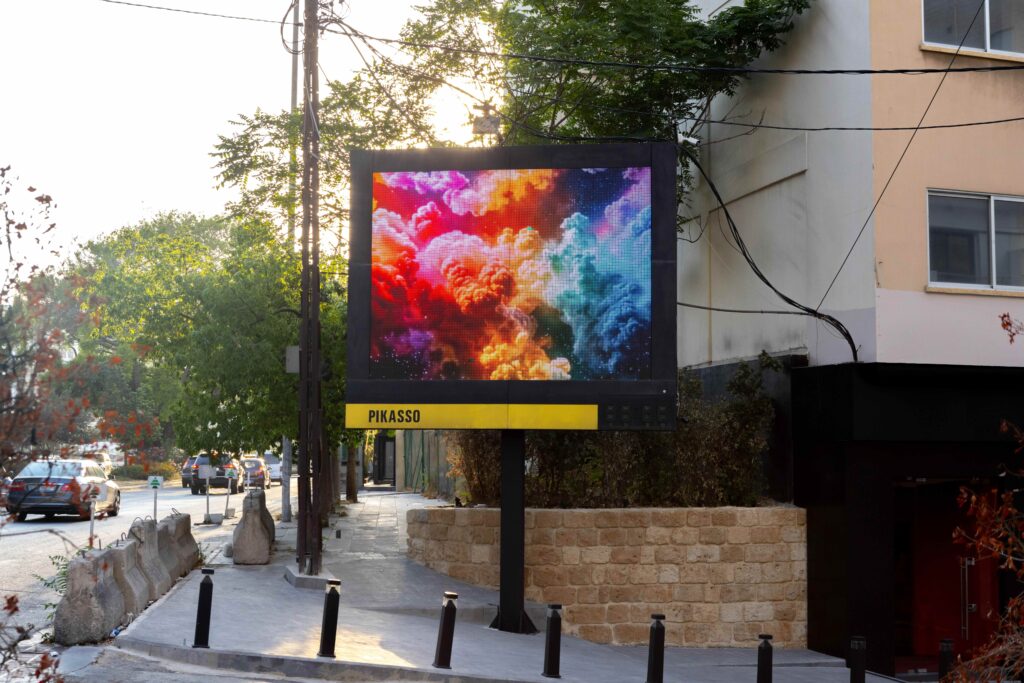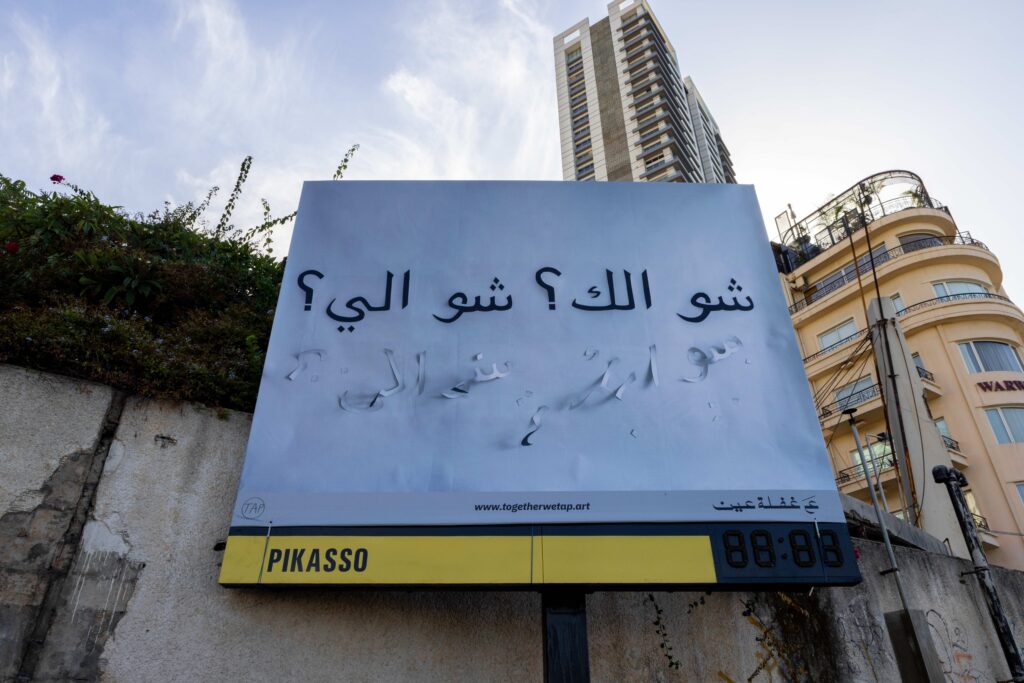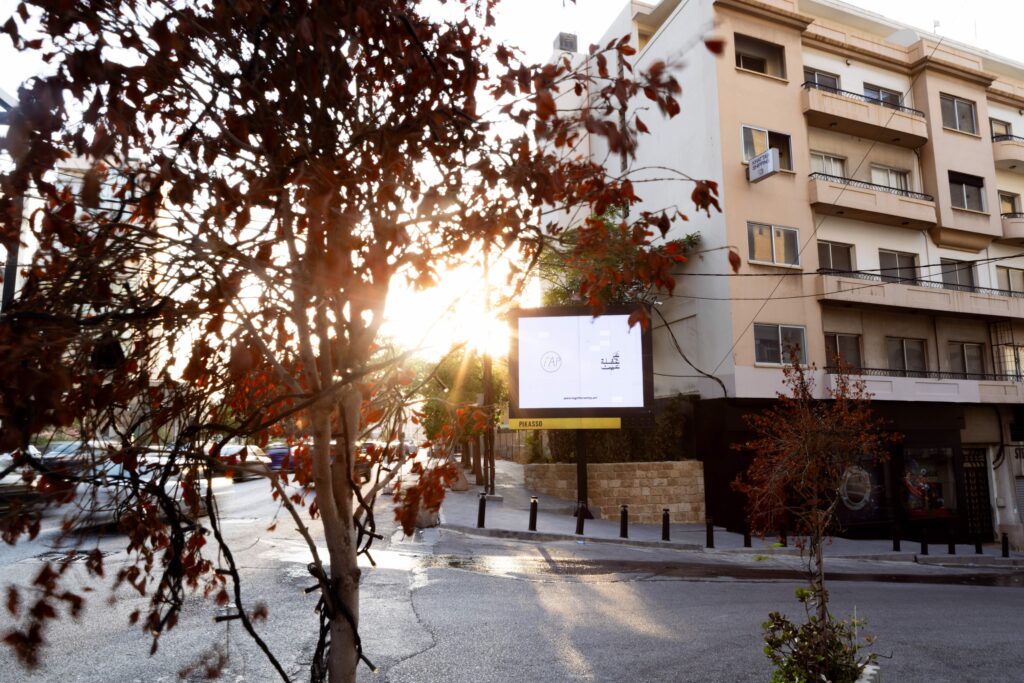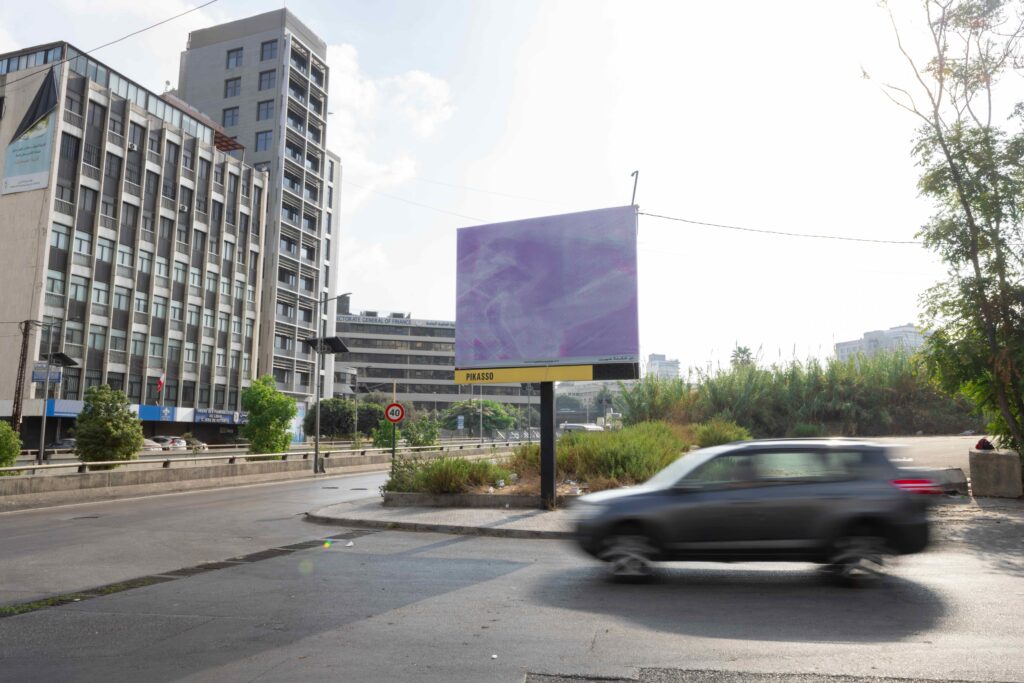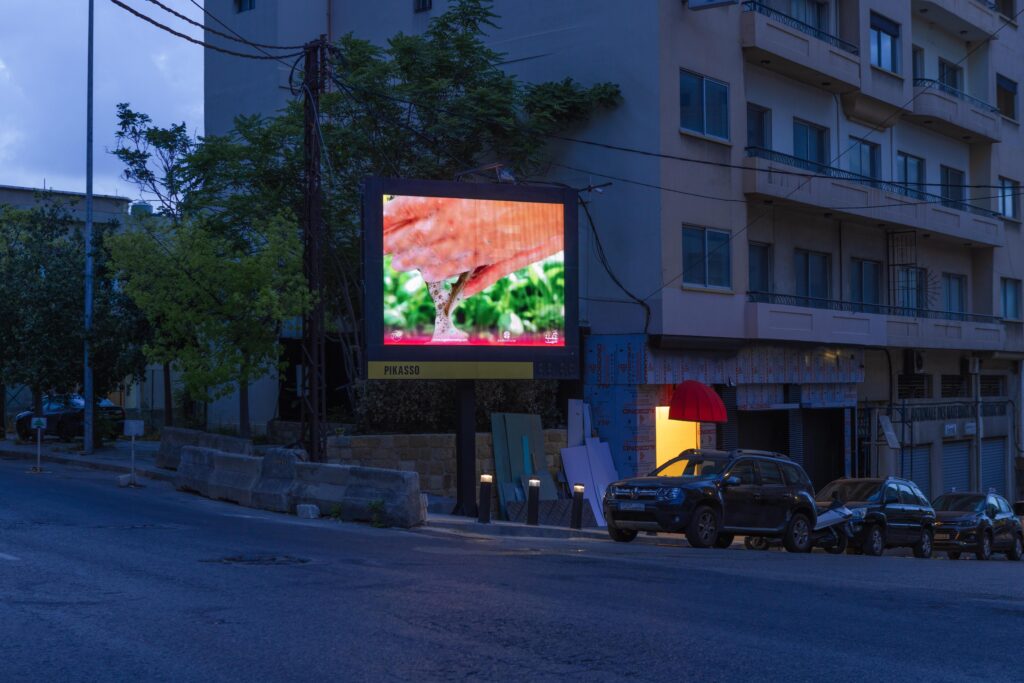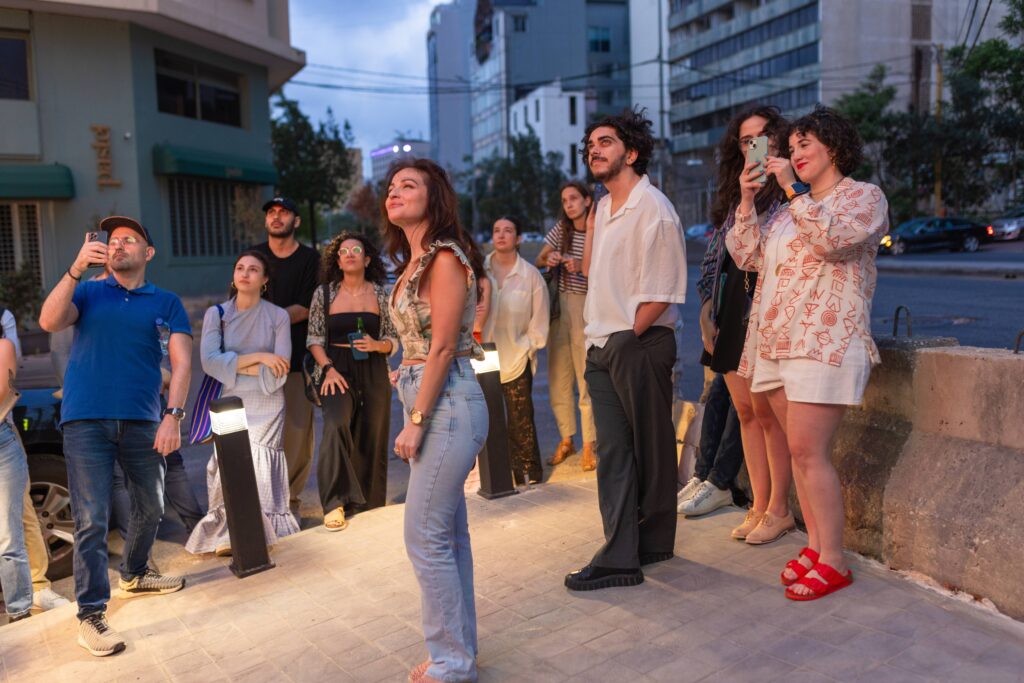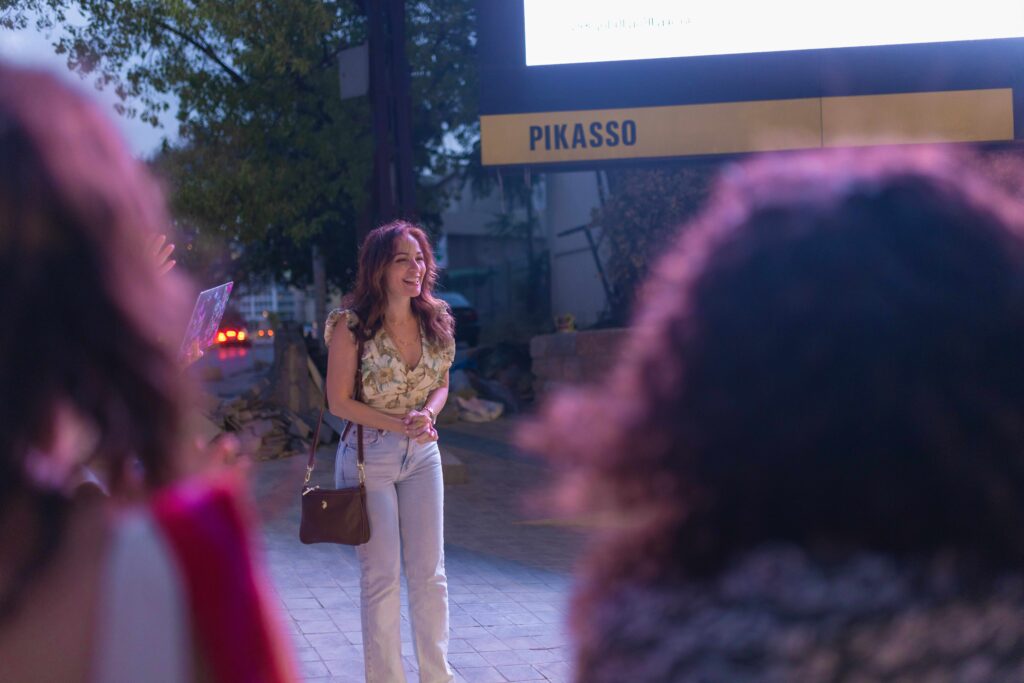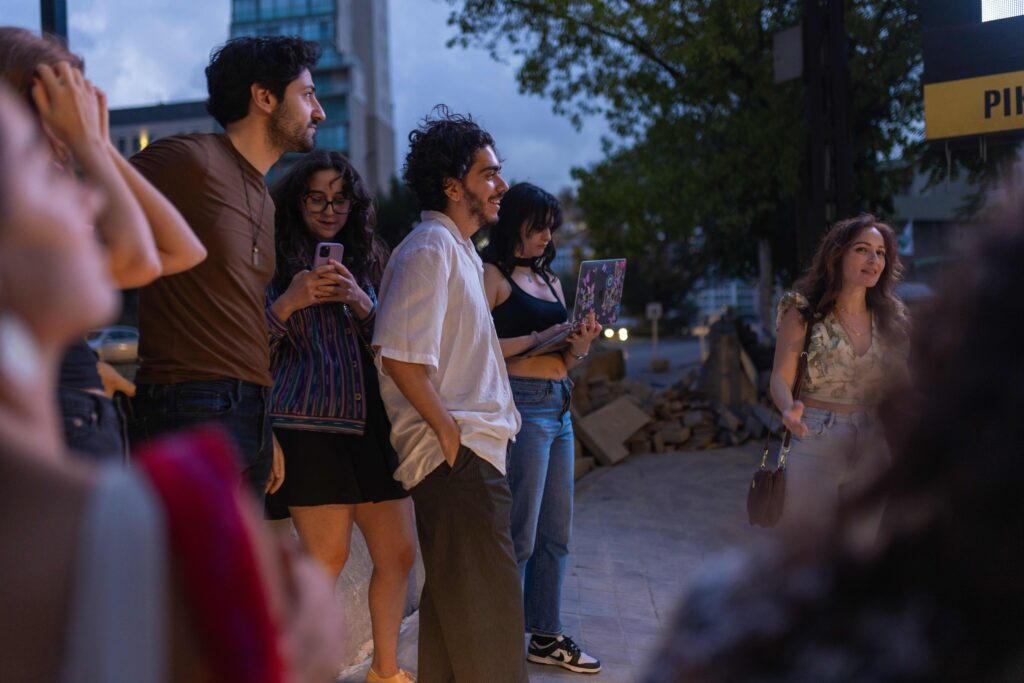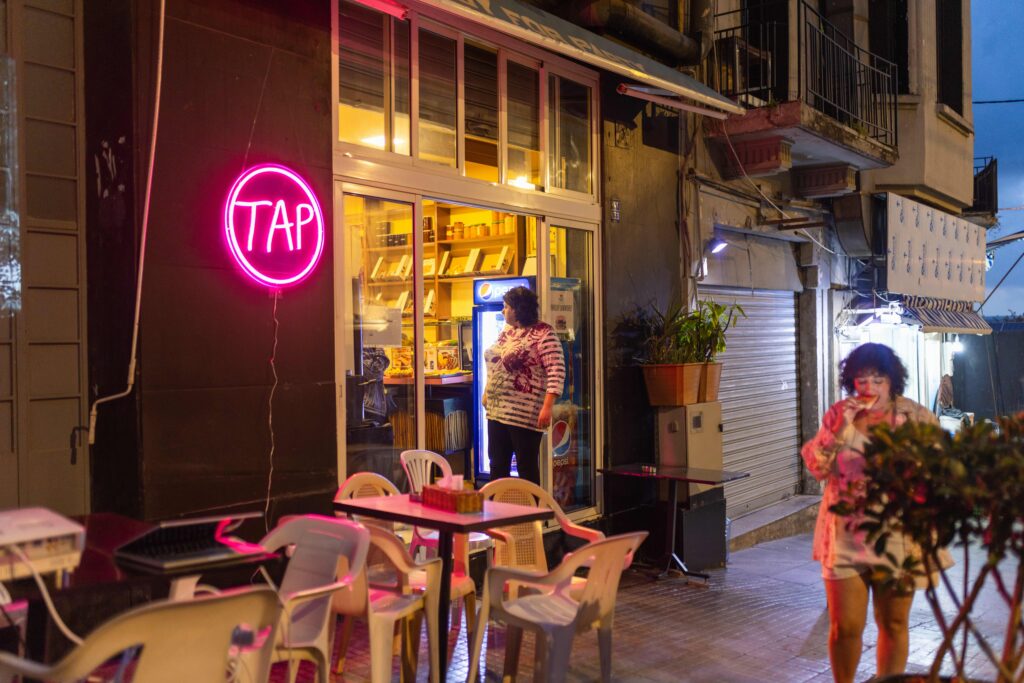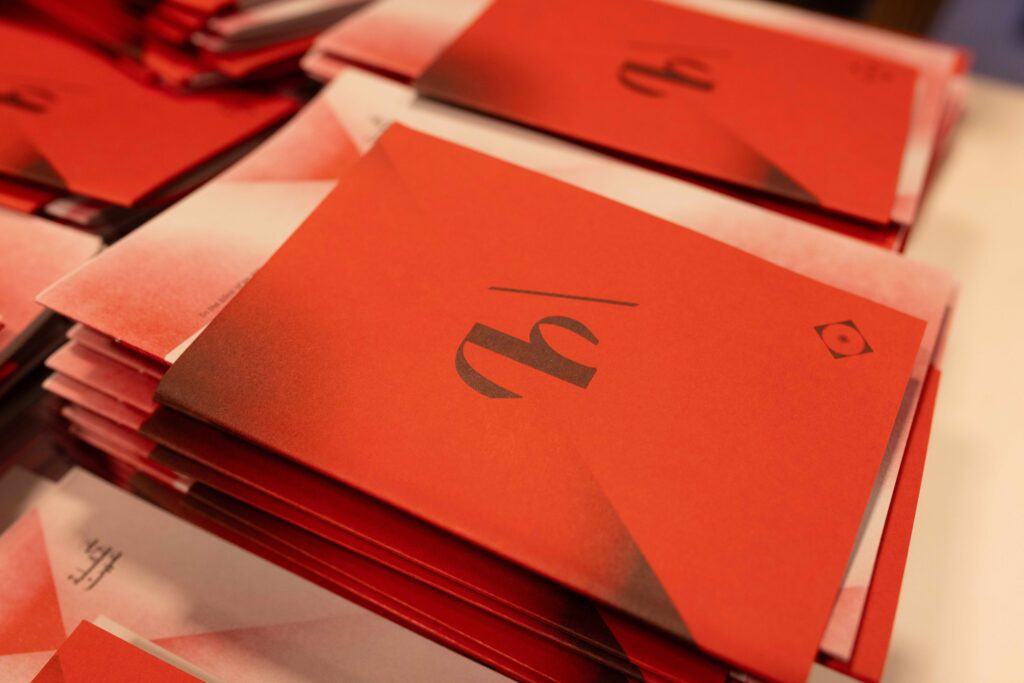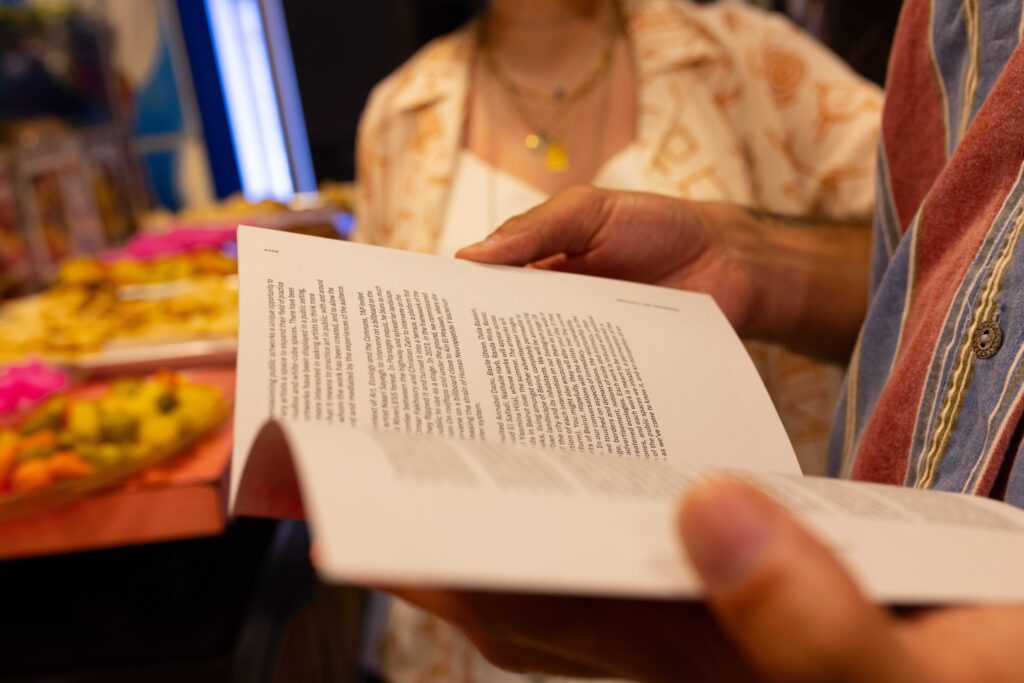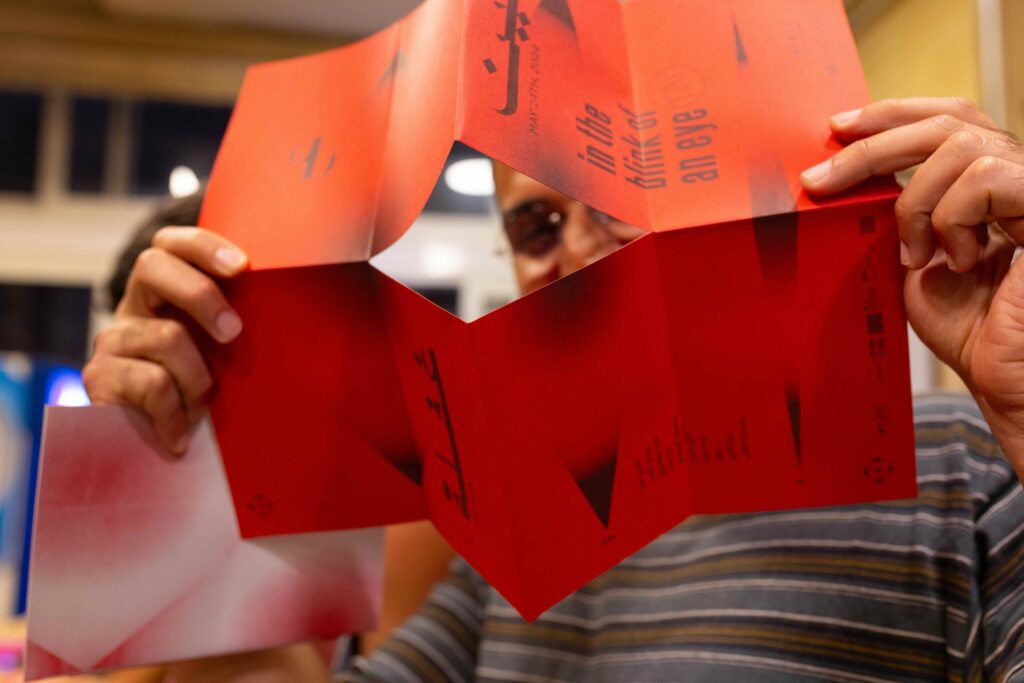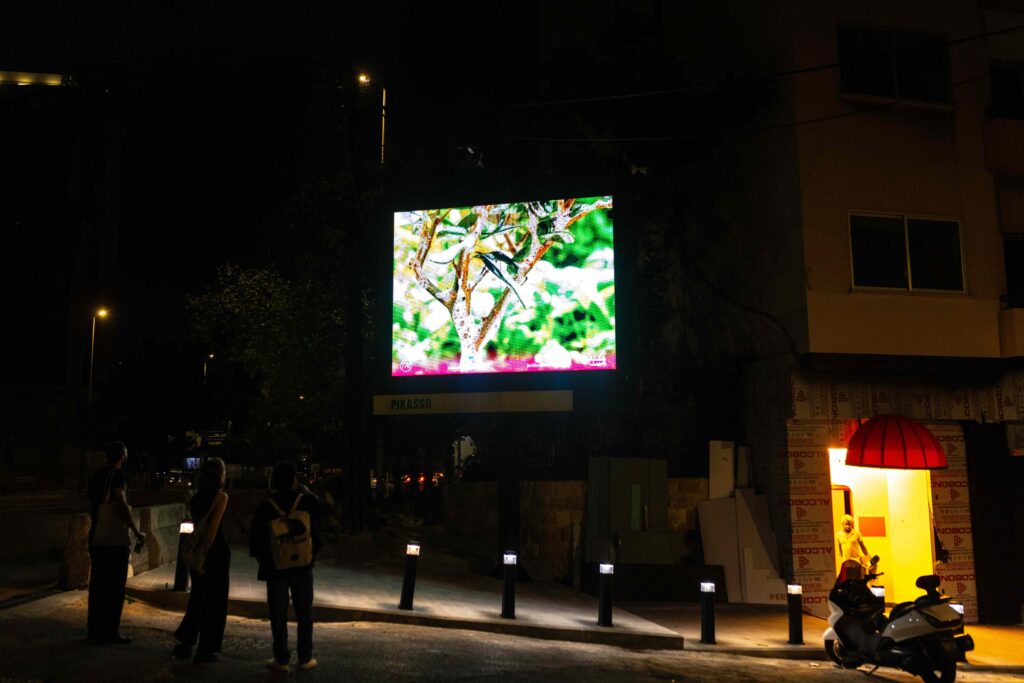In the Blink of an Eye
Public Art Commissions
May 24 - October 2 2024
Beirut, Lebanon
Press
Downloads
What kind of image holds up in the face of failure?
During the uprising in 2019, the billboards also became a space for public outcry, providing structural support for impromptu interventions, questioning the role of the public and private sectors in the face of the crisis – much like other public structures in the city (the Egg, the statue in Martyr’s square, and major city roundabouts). In the past couple of years, we’ve seen the demise of the image, iconography and representation in full juxtaposition to a failing political state.
In January 2024, TAP reached out to ten visual artists to create context-responsive, socially-engaged works that occupy the space of the billboard – conceptually reflecting and subverting the commentary on the failure of its classic image: the advertisement. The billboard format requires the contemporary artist to address a wide general audience and engage unsuspecting passersby with great visual clarity.
The use of billboards and the subversion of the media signscape by contemporary artists is inscribed in a rich political and social history. Dating back to the 1980s with the advent of the billboard advertisement, artists like Jenny Holzer, the Guerrilla Girls, John Fekner, Félix González-Torres and Tania Bruguera began using the larger-than-life format to subvert the consumerist-driven agenda, by infiltrating the public spaces, permeating the billboard medium, and occupying the billboard structure.
TAP finds in commissioning public artworks a unique opportunity to grant contemporary artists a space to expand their field of practice outside of their studios and white-cube spaces. There have been instances when artworks have been displayed in a public setting, however, we are more interested in asking artists to think more critically about what it means to practice art in public: with and around the audience for whom the work has been created, and to allow the work to be molded and mediated by the experiences of the audience.
We invited Annabel Daou, Basile Ghosn, Dalia Baassiri, Dia Mrad, Mahmoud El Safadi, Nathalie Harb, Randa Mirza, Renoz, Tamara Kalo, and Yasmina Hilal, whose works appeared across different billboards in Beirut over the summer. The artworks lived amongst other advertisement images, infiltrating the urban landscape of Beirut, completely permeable to the experience of the city and its inhabitants. In our conversations with the artists, we touched on aspects of immediacy, vulnerability, the use of language, borders and demarcations, the relationship to the city, the world of advertisement, notions of scale and intimacy, urban landscape and threatened ecologies. Each work is imbued with political and social undertones, and each work is meant to be encountered: a subtle infiltration of the public spaces we inhabit, a permeation of the billboard medium as we’ve come to know it, and an occupation of an urban structure.
The project is supported by the Beryt fund, implemented by UN-Habitat through funding from the Lebanon Financing Facility (LFF) that is administered by the World Bank (WB). The Cultural and Creative Industries component is implemented by UNESCO Beirut.
